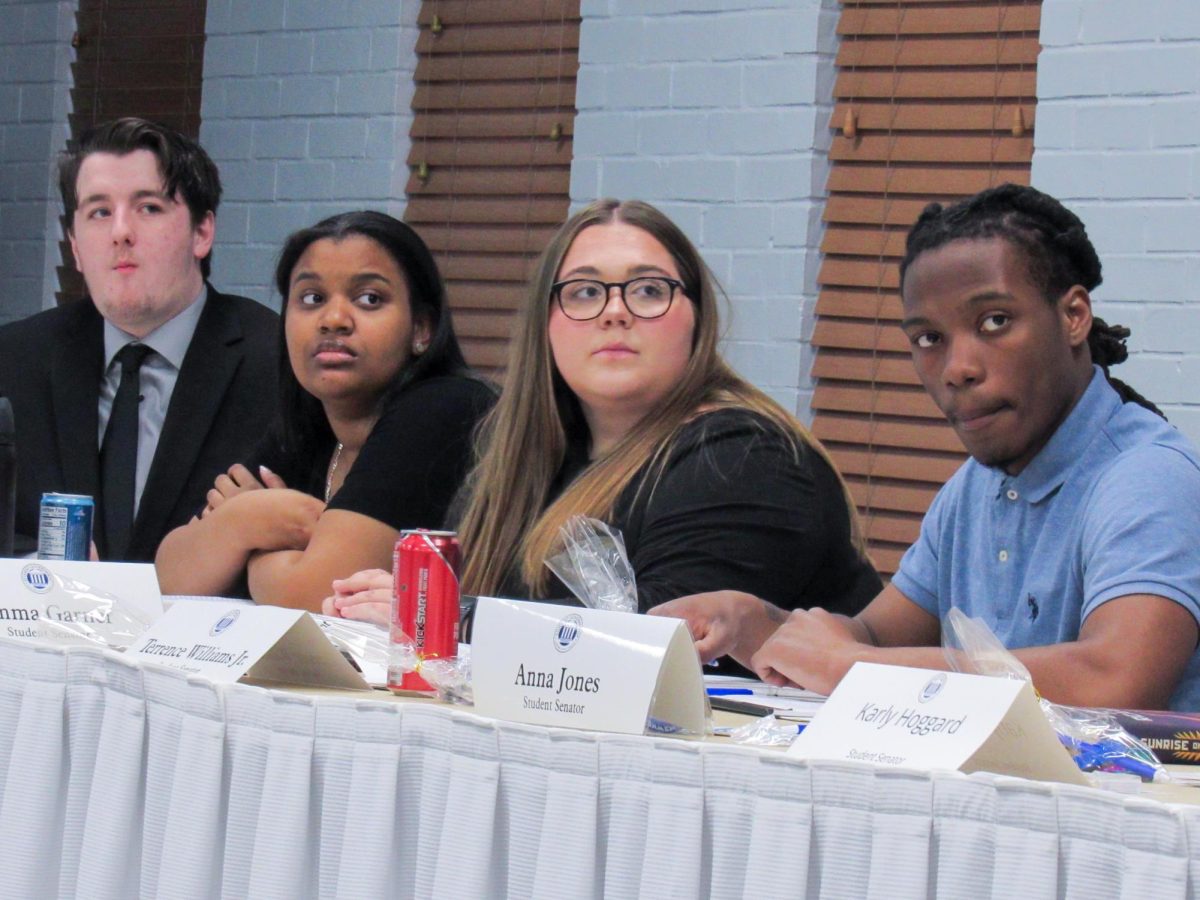Column: Facebook: A false ‘friend’ to the self-indulgent
I cringe every time a columnist tells me he wants to write about Facebook. Nine out of 10 times it’s an anecdotal warning about the dangers of incautious or imprudent posting. It’s been done a million times, and anyone who posts a picture of himself doing coke and dressed like Hitler deserves the skepticism of potential employers.
We should also avoid the Luddite fantasy of Facebook as some sci-fi, slippery-slope prequel to “The Matrix.” If someone suggests that humanity is being enslaved or brainwashed by any one entity, make the inexpensive, heartfelt donation of a square foot of tin foil and send them off with a smile.
Facebook is a wonderful thing. Most of my closest friends don’t live anywhere near me and without Facebook we probably wouldn’t talk more than a few times a year. As a musician, Facebook gives me a free platform to promote my music and stay in touch with fans.
But I often can’t bring myself to sit and scroll through my news feed. It’s taxing to wade through all that over-sharing. It’s not just that I find much of it boring and depressing (I do), it’s the troubling reminder that we are losing an important part of social interaction and personal development, and there’s nothing I can do about it.
Humans are social animals and need social interaction to stay sane and develop. If I say something clever and you laugh, I get a shot of adrenaline and dopamine as a reward. But if I waste your time telling you I’ve switched to Grape-Nuts in the mornings or that my cat did the cutest thing, you indicate (however politely) that you don’t care and I’m forced to be more interesting in the future if I want your
attention.
The problem with Facebook is that its very structure encourages people to be self-absorbed. People post banal bits of their lives or, worse, vague allusions to the tough day they are having and the rest of us have to sift through this therapeutic drivel to get to grown-up posts. There isn’t a “No one cares” button or a “Get over yourself” button. So it sits there until someone “likes” it or relents with a sympathetic comment out of pity. I’ve even observed little communities of co-dependent enablers who “like” one another’s self-indulgence on the condition that it will be reciprocated.
There have always been people who have no idea how boring they are, but they seem bolder than ever. It’s amazing how often my fellow students find some obscure way to commandeer a class discussion and make it about how quirky their family is or how tough it was when their friend died in high school.
But when they go home and log in, they enter a world where every little thought is profound or cute. All reinforcement is positive. Nothing is ignored, just overlooked. Everything is special and interesting as it is, and they have the “likes” to prove it.
And there is no subtle way to discourage this mutual masturbation, no Facebook equivalent to body language, which means we all get to pretend the mirror is a perfectly fine thing to study. I meet countless journalism majors who read the news once a week and check their “news feed” every hour. Why should they think their priorities are backward? The news is about the world and Facebook is about them. They understand, conceptually, that important things are happening to people in the real world, but they can choose a world where everything they do is important.
A frequent criticism of technology is that it isolates us. I worry more that it insulates us.
On this front, it looks like a losing batle. Facebook’s new redesigned features a ticker that automatically shares everything you type or read or watch or listen to. Now we all share meaningless crap.
Dave Balson is a senior journalism major.
He can be reached at 581-2812 or DENopinions@gmail.com.











![[Thumbnail Edition] Junior right-handed Pitcher Lukas Touma catches at the game against Bradley University Tuesday](https://www.dailyeasternnews.com/wp-content/uploads/2025/03/MBSN_14_O-e1743293284377-1200x670.jpg)

![[Thumbnail Edition] Eastern Illinois University baseball senior utility player Tyler Castro fields a ground ball during the team's first intrasquad scrimmage of the season on Jan. 31.](https://www.dailyeasternnews.com/wp-content/uploads/2025/03/BB_01_O-e1742874760130-1-e1742907504722-1200x911.jpg)
![[Thumbnail Edition] Senior Foward Macy McGlone, getsw the ball and gets the point during the first half of the game aginst Western Illinois University,, Eastern Illinois University Lost to Western Illinois University Thursday March 6 20205, 78-75 EIU lost making it the end of their season](https://www.dailyeasternnews.com/wp-content/uploads/2025/03/WBB_OVC_03_O-1-e1743361637111-1200x614.jpg)





































![The Weeklings lead guitarist John Merjave [Left] and guitarist Bob Burger [Right] perform "I Am the Walrus" at The Weeklings Beatles Bash concert in the Dvorak Concert Hall on Saturday.](https://www.dailyeasternnews.com/wp-content/uploads/2025/03/WL_01_O-1200x900.jpg)
![The team listens as its captain Patience Cox [Number 25] lectures to them about what's appropriate to talk about through practice during "The Wolves" on Thursday, March 6, in the Black Box Theatre in the Doudna Fine Arts Center in Charleston, Ill.](https://www.dailyeasternnews.com/wp-content/uploads/2025/03/WolvesPre-12-1200x800.jpg)



















